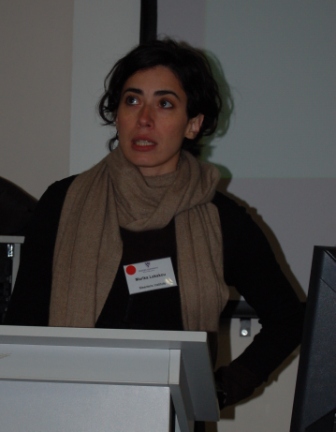
Linguists from Europe are creating a common Internet search engine that will give users access to numerous databases helping them to compare the structures of languages in Europe. This is one of the goals of the European Dialect Syntax project (Edisyn), which Marika Lekakou from the Netherlands introduced to South African linguists at a special talk on Monday 27 June at Interactions and Interfaces, the linguistics conference being hosted at Rhodes. Lekakou is a post-doctoral researcher at the Meertens Institute in the Netherlands.
Lekakou's talk kicked off a special panel discussion at the conference entitled “Approaches to Language Variation”, which was funded by the South Africa Netherlands research Programme on Alternatives in Development (SANPAD), bringing together top researchers from South Africa and the Netherlands among other countries.
Edisyn has been in the works for the past five years. Lekakou said that meetings of the project are held every two years and that there are two goals to this project. Their first goal is to start a network of European dialect syntacticians that use “similar standards of methodology of data collection, data storage and annotation, data retrieval and cartography”, and the second goal is building the search engine, which will be opened in April 2012. Lekakou added that this programme is innovative in that it is the first project that includes different theoretical perspectives from different linguistic specialists and that a formal syntax research methodology was especially developed, by them, for this project.
She also presented some of her findings on syntactic variations between different dialects of Dutch, stating that there is an “abundance of doubling phenomena” in Dutch dialects; however, this is not found in formal language. Lekakou also noted that the syntactic variation between different dialects of Dutch is “enormous” and said she is “convinced” that this is not a “quirk” of Dutch but pertains to all languages.
Lekakou ended her speech by saying that the funding of research is important to keeping the Edisyn network going. The project is currently funded by the European Science Foundation.
Story by Ninah Petersen
Photo by Ju-ann Hockly
